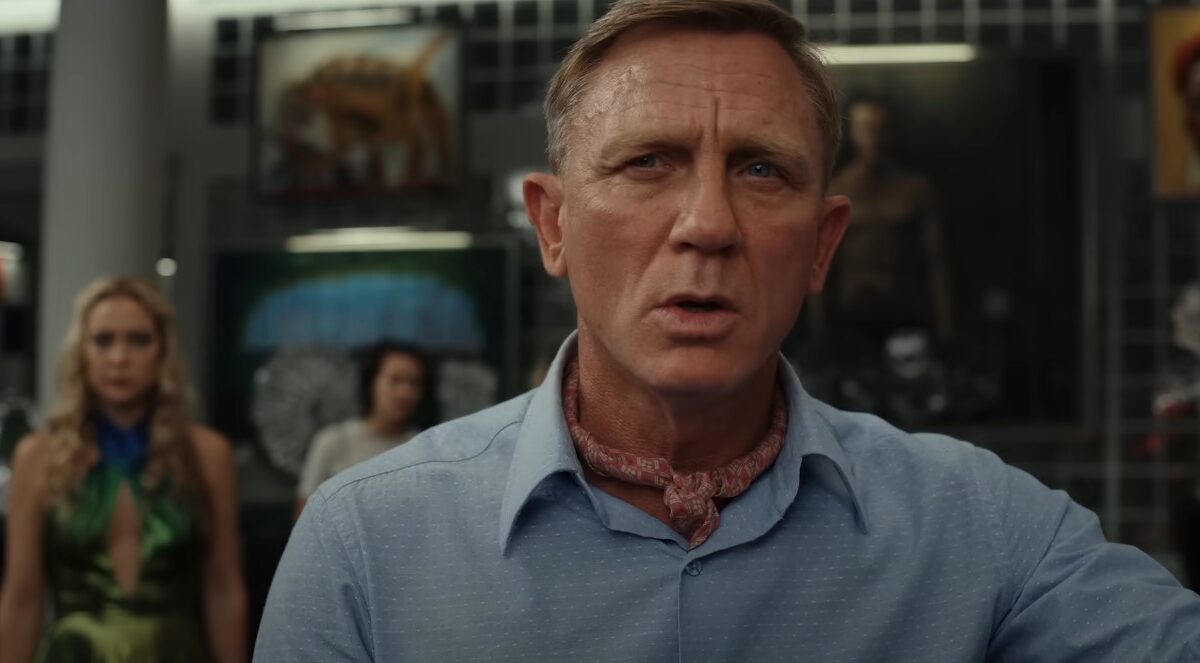When a renewable energy source is exposed to be fully funded by a billionaire and its only supporters are influential people who happen to be funded by the same person, what is the only natural conclusion? The agenda to “protect the planet” might be more about consolidating power than ensuring a greener tomorrow.
“Glass Onion,” the sequel to 2019’s hit film “Knives Out,” answers that question as an underlying subplot separate from the film’s main premise. Renewable energy is introduced in the first 10 minutes of the film as a headline for one of the main characters, Claire Debella, governor of Connecticut, as she appears as a guest on CNN.
While campaigning to become a U.S. senator, she lavishes praise upon renewable energy sources and says her biggest issue is climate change, an unsurprising message delivered by an obviously Democratic candidate in May 2020, during the throes of the pandemic. The use of the headline, however, is a clue to which the audience should pay attention.
The plot line is as follows: A friend group whose members call themselves “The Disrupters” are invited by their ringleader, Miles Bron, to his resort island in Greece to play a murder mystery game. He is the epitome of the modern billionaire in satirical form: “He’s not just a rich guy: He’s a visionary, a genius, an author of the amazing human future.”
This “amazing human future” is a brand-new renewable energy source. The idea behind the energy source starts years before on a napkin in a bar called the Glass Onion. Cassandra “Andy” Brown and Bron become business partners, investing in different ideas and endeavors. One day, Bron decides he wants to back a new renewable energy source based on hydrogen. Andy says she will leave the company and take her half because the idea is too dangerous and will not work. Brown, however, cheats her out of her shares, leaving her without wealth and taking away her credibility. Any sign of dissent, and Bron tries to silence it.
This part of the plot satirizes the reality that dissenters of left-wing ideology are ridiculed. Credibility is supposed to be based on science and research, but political leaders often base it on ideological litmus tests. Thus, you are not credible if you push against the popular narrative. In this case, that narrative is that renewables are reliable and necessary.
When Bron reveals at the first dinner on the island that he has invited world leaders to come at the end of the week to witness the reveal of the mysterious energy source, Lionel Toussaint, the scientist, says it is not ready, and Debella, the governor, says, “This whole island could go up like the Hindenburg!” But Bron won’t budge.
Bron surrounds himself with people who are too afraid to disagree with him and are even unable to, as he is the reason for their success. Dependent on Bron’s money, they are frenemies, forever indebted to his good graces. Debella not only pushes renewable energy on CNN at the beginning of the film but also reveals later that Bron financed her gubernatorial campaign. She would not have won without him, so she is willing to push his agenda.
The movie explores the question of whether renewable energy is about the planet or about putting more power and money into the hands of already wealthy people? “Glass Onion” suggests the latter, as Bron is rich, wants to be richer, and is willing to back a completely new energy source without enough real-world trials substantiating its practicality.
This is the same story with wind and solar energy that we see being played out today. Neither source provides the reliability and affordability necessary to provide power to the world’s 8 billion people, yet media outlets and world leaders have bought into the idea of “net zero.” Never mind how flammable or detrimental a new source might be, it just needs to be marketed as “cleaner” while subsidized by the government to mask its costs.
“Glass Onion” is a great film that satirizes pop culture references. The ingenuity of slipping in references to the unreliability and danger of not testing new ideas for energy exposes the climate agenda as scrambling for power and privilege while condemning the rest of the world to the unknown consequences.









